Rollins entrepreneurs
Going their own way
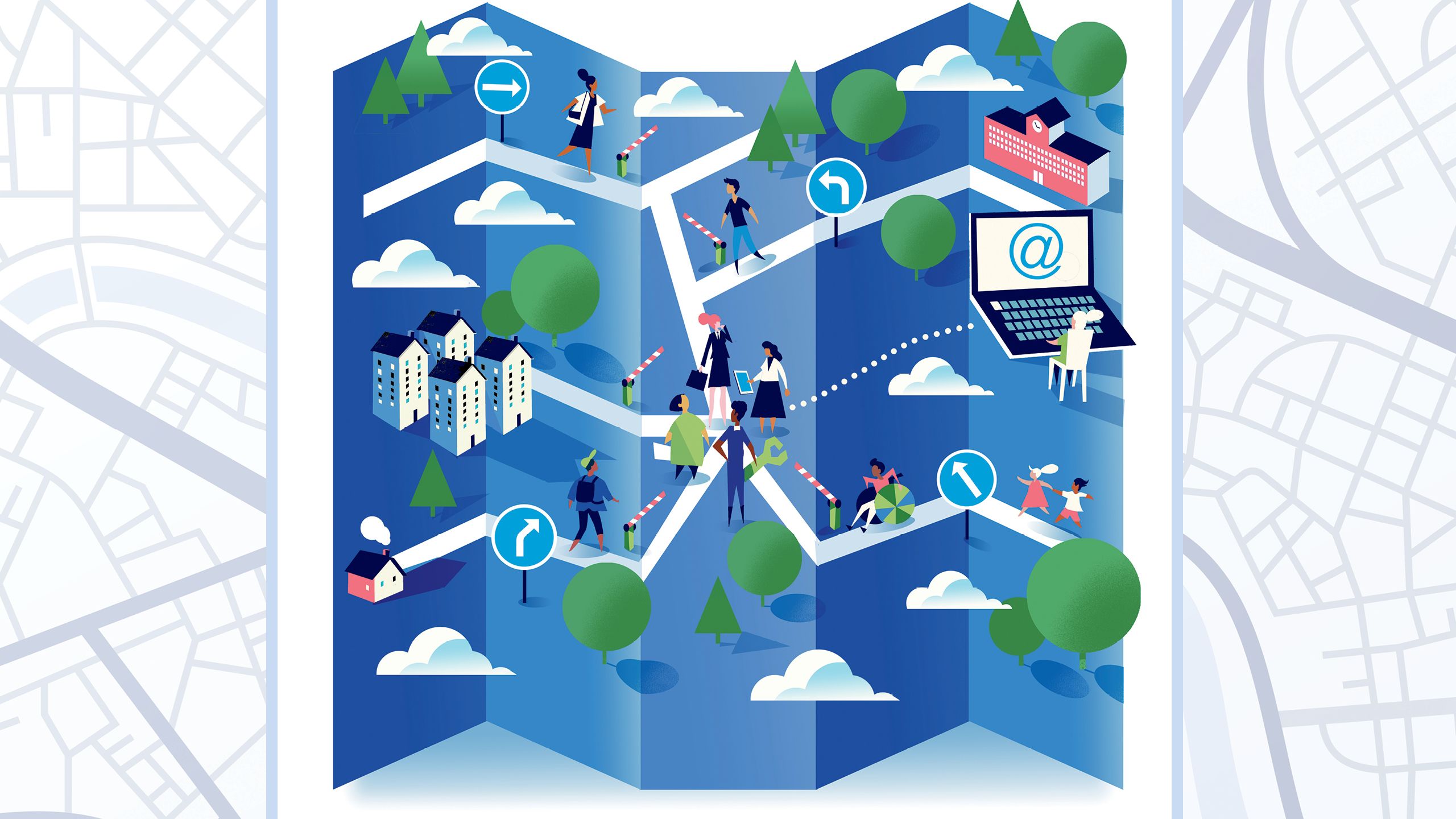
Keisha (Edwards) Hunt, Taroub Harb Faramand, Kelvin Brown, Meaghan Kennedy, and Elizabeth Sprouse all went through Rollins at different times. They studied different subjects in different departments. But they have one thing in common. They all started their own businesses. Here are their stories.
Merging public health and information technology
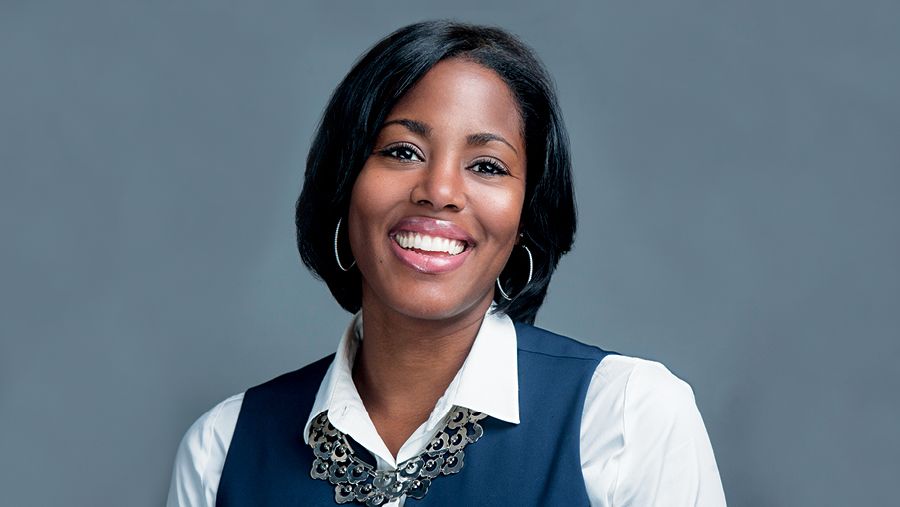
The success of Metas Solutions has been beyond Keisha (Edwards) Hunt’s wildest dreams. The 2003 MPH graduate launched the management consulting firm in 2014 with her husband, Eric, out of their basement. “When we started the company, I just wanted to make sure we were not going to lose our house,” says Hunt.
They didn’t. Today Metas Solutions boasts more than 45 employees in two Atlanta offices, one in North Carolina, and another office slated to open in Washington, D.C. “We never anticipated this kind of growth,” says Hunt. “It’s just been staggering.”
She also never anticipated her current career. She worked as a high school English teacher after graduating from Duke University, and she envisioned doing grass-roots, community-level work in health education, perhaps within school systems. Toward that end, she enrolled, baby boy in tow, in the Rollins Department of Behavioral, Social, and Health Education Sciences.
Her plans changed when she was recruited by Booz Allen Hamilton to work in their civil health practice, providing advisory services to the US Department of Health and Human Services and other federal agencies. She stayed for 11 years and met her husband on the job. Early on, they discovered starting their own business was a shared goal.
After leaving Booz Allen and working at Pricewater-houseCoopers (PwC) Public Sector for more than a year while she moonlighted supporting the fledgling business, Hunt and her husband decided it was time. The team got a tremendous assist by subcontracting back to their previous employers. “Booz Allen and PwC teamed with us as partners,” she says. “The reason we were able to get off the ground is because we had established and kept good relationships with them, and they in turn trusted us.”
They also got a boost by becoming certified by the US Small Business Administration as an 8(a) Economically Disadvantaged Woman-Owned Small Business. “Someone told us to watch out,” says Hunt. “They said once you get your 8(a) certification, you need to be ready because work will come flying at you from all directions. That was certainly true.”
Hunt and her husband bring different skill sets to the table—she the public health expertise and he the information technology prowess. “Metas Solutions’ services revolve around solving a public health challenge with information technology solutions,” she says.
Their work with the CDC’s Vaccines for Children (VFC) program is an illustrative example. The CDC buys vaccines at a discount, distributes them to grantees such as state health departments and local health agencies, which in turn distribute them to physicians’ offices and public health clinics registered as VFC providers. “Metas Solutions works hand-in-hand with the CDC developers of the web-based system, developing the requirements, support, customer service as well as identifying and fixing defects and doing data analysis,” says Hunt. “It’s a highly technical program, and we basically make sure it is operating the way it is supposed to.”
Though it seems such a long time ago, Hunt still treasures her time at Rollins. She was enrolled in another public health program early in her pregnancy, and her adviser encouraged her to take a leave of absence, doubting she would be able to complete the program as a single mother. When she was ready to restart graduate school, she visited different public health schools with her young son and got a reception she describes as cold and indifferent. So when she interviewed at Rollins, she made arrangements to leave her son with a sitter, but she was greeted with disappointment. “The person I was meeting said, “You should have brought your son with you!’” says Hunt. “The whole environment was so warm and accepting. I knew this was the place for me.”
Taking stock, founding a successful business is the thing Hunt is the second most proud of. Her proudest moment? “Graduating from Rollins on time with a high GPA and my 11-month-old son on my hip.”


Working toward gender equity
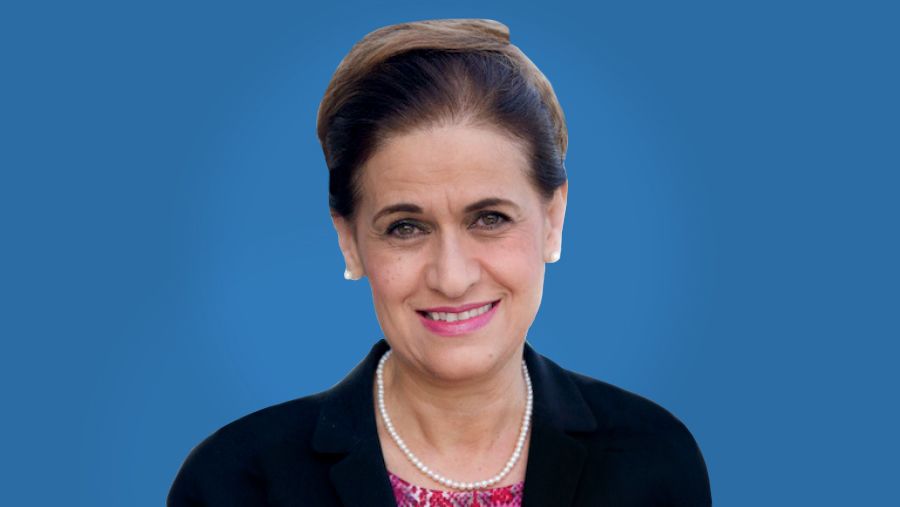
When Dr. Taroub Harb Faramand 95MPH founded WI-HER (Women Influencing Health, Education, and Rule of Law), a global development consulting firm, she was ready. She had been working as chief of party of the USAID Health Sector Reform and Development Project, managing an $86 million project aimed at improving the quality of care for Palestinians. Before that, she served as USAID health officer, a director of global health projects, and as a senior vice president for global health programs with Project HOPE, where she oversaw a network of core and field staff responsible for more than 80 programs in 36 countries.
“By the time I started WI-HER in 2011, I already had extensive experience in managing global health projects, strengthening health systems, and leading health sector reform,” says Faramand, who received the 2007–2008 Rollins Alumni Association’s Distinguished Achievement Award. “But I came to believe that health programs alone cannot improve people’s lives unless they are linked to other sectors such as education, agriculture, energy, and the rule of law. All areas must work together to address the underlying social problems.”
Toward that end, Faramand began assembling a team of public health, medical, legal, and development professionals that today comprises WI-HER. The company now works in more than 35 countries on programs that build sustainable local capacity with a particular focus on gender equity and social inclusion. For example, WI-HER worked with the government of India to overcome barriers to women’s housing finance and housing ownership, developing and promoting innovative housing finance products and services that allow financial institutions to circumvent barriers to women’s access. In Uganda, the firm worked with the community to improve adherence to HIV treatment among men, achieving 90 percent viral load suppression. In Western Kenya, WI-HER built capacity of health providers during COVID-19 to provide better services to gender-based violence victims, achieving 100 percent adherence to WHO standards of care.
“I believe gender, equity, and social inclusion are key to achieving optimal health outcomes,” says Faramand. “But from my experience, this is not well understood or accepted. That’s one of the reasons I started WI-HER. I wanted the freedom to be creative and innovate in integrating gender, equity, and social inclusion to improve health outcomes in ways that work for people and that are contextually and culturally appropriate.”
The road has not been an easy one, Faramand acknowledges. She left a stable job with a good salary and benefits for the unknown. She had to learn the ropes of running her own business on her own. And she didn’t pay herself a salary for the first nine years, instead investing most of her savings into the company. But all the sacrifices were worth it. “I look back on what I’ve created with WI-HER, and what we’ve accomplished, and I feel proud,” she says.
Of her time at Rollins, Faramand says, “I came to get my MPH because I could not advance in my career without that degree. But once I got to Rollins, I realized it was the best decision I had ever made. I was mentored by the very best in epidemiology and global health—Roger Rochat [professor of global health], Stan Foster [professor of global health emeritus] and Hani Atrash [adjunct professor and director, Division of Healthy Start and Perinatal Services, Health Resources, and Services Administration]. I can’t begin to express how they influenced my life.”


Taroub Harb Faramand conducts a capacity development session with members of the Kisimba community in Eastern Uganda so they, in turn, can lead change and address gender disparities affecting health outcomes.
Taroub Harb Faramand conducts a capacity development session with members of the Kisimba community in Eastern Uganda so they, in turn, can lead change and address gender disparities affecting health outcomes.
Advancing telehealth
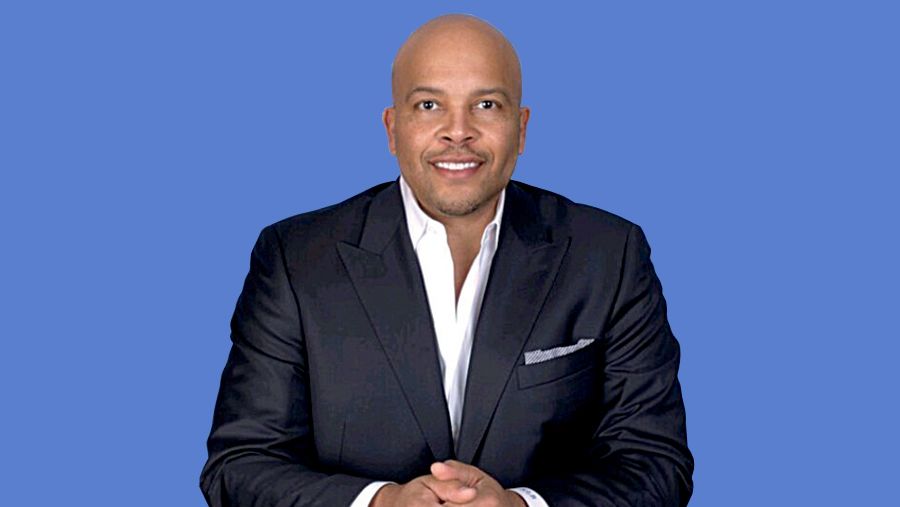
Dr. Kelvin Brown 98MPH 03MD started his first business while he was still a general surgery resident at Emory between 1998 and 2003. That’s when he created Vital Statistics, an organization that conducted health fairs and screenings in businesses, schools, and community centers.
Spurred by trends he was seeing in his surgical practice, Brown started his second business, Precision Health and Weight Loss Centers, in 2008. The centers, which now number four in the Atlanta area, offer health assessments, customized meal and fitness plans, and weight management services.
Brown is just launching his third business, GoVirtueWell, which is a sort of telemedicine middleman. Brown, who says he has been using telemedicine “since before it was cool,” admits the COVID-19 pandemic gave his new venture a tremendous jump-start. “I’ve always known telemedicine is going to be the future,” he says. “But with COVID, it had a 7,000 percent increase nationwide last year. The pandemic reduced regulations, increased reimbursements for virtual businesses, and increased the adoption of virtual medicine by both providers and patients. It really shortened our go-to-market planning, maybe by a couple of years.”
GoVirtueWell will be a series of nationwide locations—kiosks or small offices within corporations, retail spaces, or other facilities—staffed with a medical assistant and the tools necessary to assess a patient virtually. “A patient shouldn’t have to be an IT expert to access telemedicine,” says Brown. “Not everyone is going to have the technology or bandwidth for good transmission. But a patient could go to a GoVirtueWell location—perhaps five minutes from their home—and have all their vital signs taken, get accurately diagnosed, and meet virtually with their own physician.”
Brown is currently operating two GoVirtueWell locations, one near the airport and another in Lithonia. He plans to open other locations in Georgia and Tennessee later this year and envisions opening many more. “I could see having them in large corporate headquarters, where they would benefit both the employers and the employees,” he says. “They would be useful in assisted living facilities. They could also go in rural and underserved areas as a way to address health care disparities.”
Brown credits his time in the Department of Health Policy and Management at Rollins for some of this business success. “That is where I really learned how to create programs for change,” he says. “It taught me how to look at both the small and big picture and to foresee coming challenges as they related to health care and the economy.”

Building ecosystems
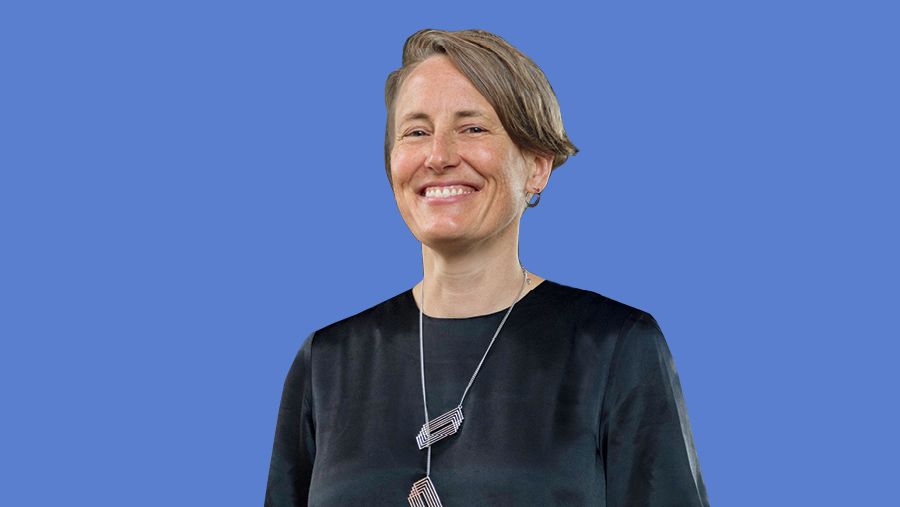
Meaghan Kennedy 93MPH decided she wanted to go out on her own while she was working at the CDC. It’s not that she didn’t like the work at the agency—she loved it. She had enrolled in Rollins right out of college with the express purpose of landing a job at the CDC, and she wasn’t disappointed. She joined that agency working in HIV in the division then led by Dean Curran. There she gained the critical thinking skills and rigor she has relied on throughout her career.
“I was running some of CDC’s international and domestic HIV seroprevalence projects and learning an insane amount,” she says. “This was the 90s and HIV was very political then, so in addition to learning about data analysis and study design, I was getting an amazing lesson in how to engage with different groups in different ways to move things forward.”
The problem was things tended to move forward slowly in a vast governmental agency, and Kennedy longed for a faster pace and more self-determination. She took graduate courses and taught research methods at Georgia Institute of Technology, started accepting a wide variety of freelance assignments to broaden her experience, and in 2001 she founded Orange Sparkle Ball, an innovation accelerator. (She drew the name from her cat’s favorite toy at the time.)
Today, the company employs 10 people, and its work takes several forms. “Much of our work is service design,” she says. “We use the same skill sets mapping the licensure requirements of childcare providers as we do mapping customer touch points in a start-up restaurant chain.”
She helps companies break down their problems into manageable bites. “Often a company will say, ‘We are going to solve this problem by buying this very expensive technology solution,’” she says. “I’ve never seen that work.”
Instead, Kennedy and her team will help an organization take a more incremental approach, identifying smaller components within the larger problem and solving them before moving on to the next component. To provide that solution, Kennedy often relies on technology solutions from small or start-up companies.
“Start-ups are the job creators globally,” says Kennedy. “If you can figure out how to match them with larger organizations, you are introducing innovation into the larger organization and also supporting job creation. At its highest level, it’s building ecosystems.”
Kennedy also helps organizations grow their products. She is working with a large university to expand a community-strengthening platform they have built and commercialized. “We are doing community analysis and helping them figure out how to integrate all of that into the next phase of their work,” she says. “They had gotten to a certain level of maturity, and they have come to us for help pushing forward.”
The COVID-19 pandemic proved to be a double-edged sword for Orange Sparkle Ball. “Half our work totally stopped, and half accelerated to the point it’s been really hard to keep up with,” says Kennedy. “We hired two Rollins REAL students to help keep up with that demand.”
Most of the COVID-19 work she has taken on revolves around risk mitigation technologies and translating rapidly evolving science for industry. For example, the team sourced technologies that can identify indoor airborne exposure risk. “Early in the pandemic, we understood the need to assess airborne risk in environments, so we looked at sensor technologies to measure airborne proxies,” she says. “We learned a whole lot about airflow dynamics.”
Her advice for others thinking of starting their own business: “Just start,” she says. “Start trying things, do small tests of things. If you get traction, the market has validated what you are doing and you keep moving forward. If not, pivot and try something else. And you need to be very future-focused, following where the trends are going. Being able to be focused on what is coming next is what I enjoy most about my work.”


Meaghan Kennedy conducts a social entrepreneur workshop at Rollins before the pandemic limited such gatherings.
Meaghan Kennedy conducts a social entrepreneur workshop at Rollins before the pandemic limited such gatherings.
Maintaining school ties

“If anyone thinks they want to start their own business, it is great fun. Be sure to talk to us first, though.”
Elizabeth Sprouse 17MPH felt these words were meant for her. After 16 years of her career, first in communications and then in clinical informatics, she was back getting a master’s in applied public health informatics through the Rollins Executive MPH program, while working full time in clinical informatics at Emory Healthcare. She was attending a track luncheon during an on-campus weekend when this counsel was shared by Mark Conde, who led her EMPH track, and Dewey Blaylock, an EMPH adjunct professor.
“I took them up on their offer,” says Sprouse.
Double Lantern Informatics is a boutique public health and clinical informatics consulting firm. “In informatics, you are between public health practitioners or clinicians and the information technology team,” Sprouse says. “This is a unique place to be, and you have the opportunity to affect real change.”
Sprouse credits her time at Rollins with changing the trajectory of her career. “It is not only the applied training that you receive at Rollins, but also the people who become a part of your life,” she says. “I count my professors among my strongest supporters and mentors. Many are entrepreneurs themselves and give willingly of their time and guideance.”
For Sprouse, the community extends beyond her professors. She is back in the EMPH teaching intro to applied public health informatics and includes her colleagues and students among her circle of friends. She also treasures the relationships she has built while serving on the Rollins Alumni Board. She is in her third year and currently president-elect.
In 2017, when Sprouse started Double Lantern, she left her role as director of clinical informatics at Emory Healthcare. She had worked at Emory for years and loved her time there. “However, I wanted to work in both clinical and public health informatics and see what I could do with my one crazy life,” Sprouse says. “I have been fortunate to also be supported by my colleagues at Emory Healthcare and still be able to work on fulfilling projects in this capacity.”
One of Sprouse’s favorite projects at Emory Healthcare has been partnering with them to establish a program for enabling the use of the FHIR (Fast Healthcare Interoperability Resources®) data standard to advance care, improve the user interface of legacy systems, and support innovation, while also being intentional and protecting sensitive data.
“For me, there is always a member of the Emory community ready to give me a boost over any hurdle I encounter,” Sprouse says. “I try to do the same for others. Going to Rollins was one of the best things I ever did for myself. Starting Double Lantern has been a close second. Mark and Dewey were right—it is a lot of fun.”
Story by Martha McKenzie
Designed by Linda Dobson
Illustration by Pietari Posti

Want to know more? Please visit
Rollins Magazine
Emory News Center
Emory University

